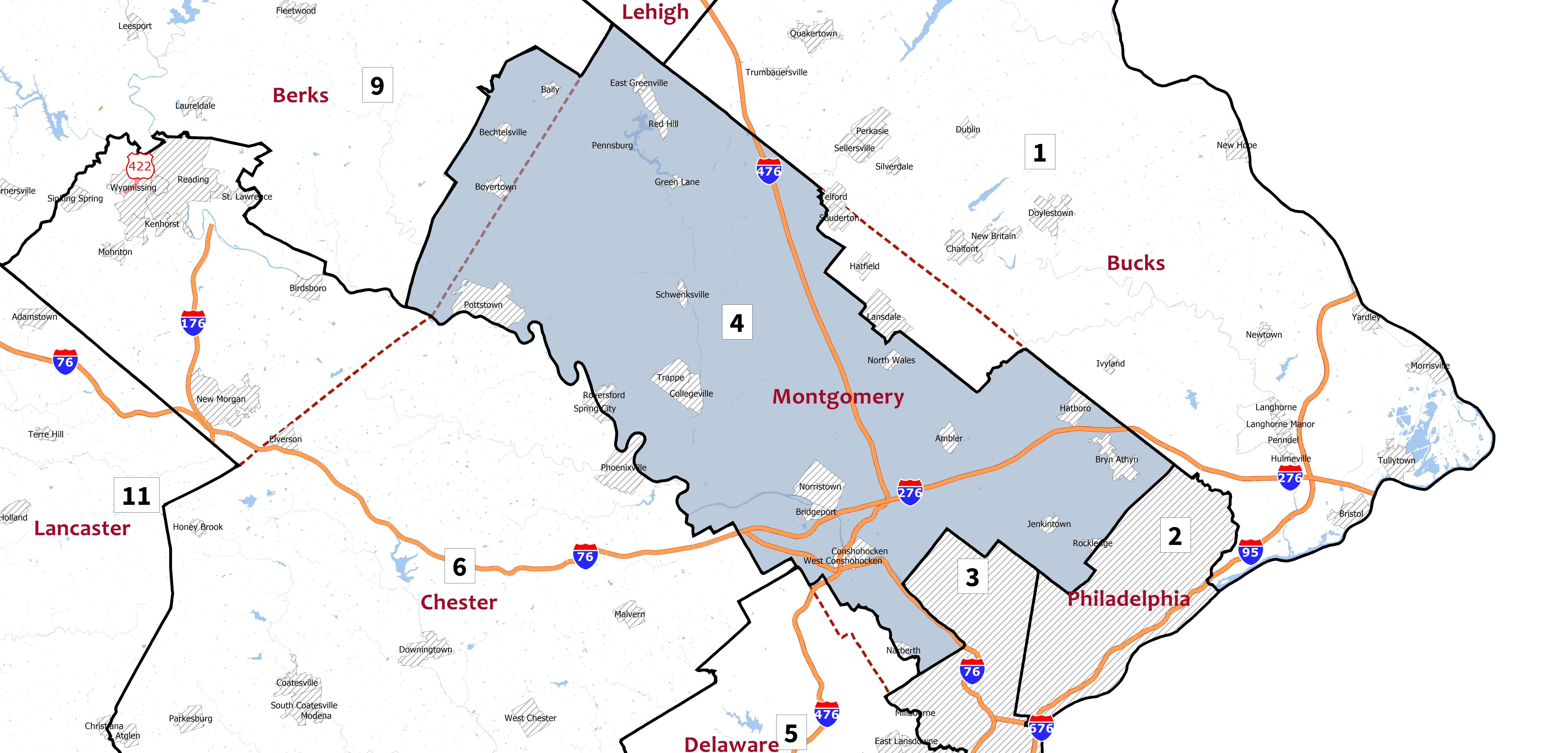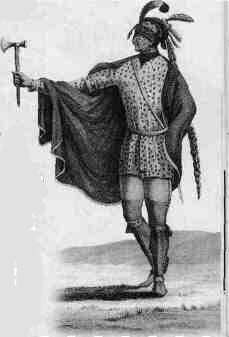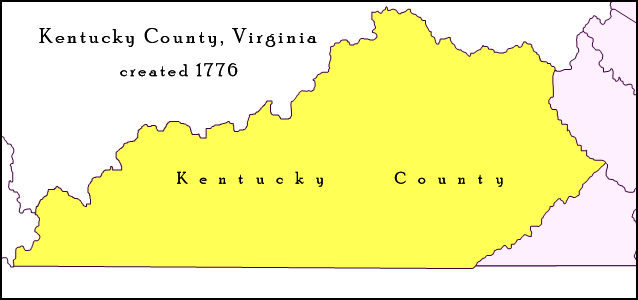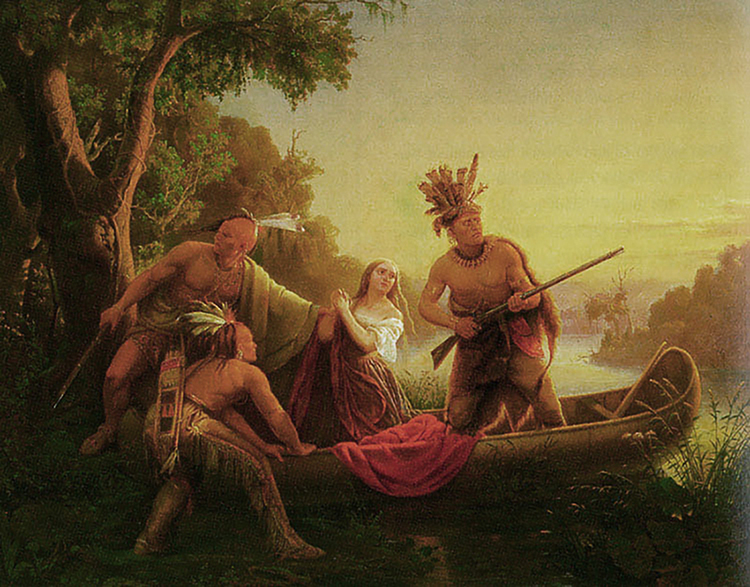|
Levi Todd
Levi Todd (October 4, 1756 – September 6, 1807) was an 18th-century American pioneer who, with his brothers John and Robert Todd, helped found present-day Lexington, Kentucky and were leading prominent landowners and statesmen in the state of Kentucky prior to its admission into the United States in 1792. He was also the grandfather of Mary Todd Lincoln, the later wife of President Abraham Lincoln, born to his son Robert S. Todd, a longtime clerk of the Kentucky House of Representatives and later representative of Fayette County. His grandson John T. Stuart, born to his daughter Hannah Todd and noted Presbyterian preacher Rev. Robert Stuart, was a prominent Illinois lawyer and a later partner of Lincoln.Herndon, William H. and Jesse W. Weik. ''Abraham Lincoln''. Vol. 1 New York and London: Appleton & Co., 1913. (pg. 192-193)Reynolds, John. ''The Pioneer History of Illinois: Containing the Discovery, in 1673, and the History of the Country to the Year 1818''. Chicago: Furgu ... [...More Info...] [...Related Items...] OR: [Wikipedia] [Google] [Baidu] |
Montgomery County, Pennsylvania
Montgomery County is a county in the Commonwealth of Pennsylvania. It is the third-most populous county in Pennsylvania and the 73rd-most populous county in the United States. As of the 2020 census, the population of the county was 856,553, representing a 7.1% increase from the 799,884 residents enumerated in the 2010 census. Montgomery County is located adjacent to and northwest of Philadelphia. The county seat and largest city is Norristown. Montgomery County is geographically diverse, ranging from farms and open land in the extreme north of the county to densely populated suburban neighborhoods in the southern and central portions of the county. Montgomery County is included in the Philadelphia- Camden- Wilmington PA- NJ- DE- MD metropolitan statistical area, sometimes expansively known as the Delaware Valley. The county marks part of the Delaware Valley's northern border with the Lehigh Valley region of Pennsylvania. In 2010, Montgomery County was the 66th-wealthiest ... [...More Info...] [...Related Items...] OR: [Wikipedia] [Google] [Baidu] |
Robert Stuart (clergyman)
Robert Stuart may refer to: * Robert Stuart (British Army officer) (c. 1812–1901), British Army officer and veteran of the Crimean War *Robert Stuart (explorer) (1785–1848), Scottish-born American fur trader *Robert Stuart, Duke of Kintyre and Lorne (1602–1602), fifth child of James VI of Scots and Anne of Denmark * Robert Stuart (businessman) (1852–1926), co-founder of the Quaker Oats Company * Robert L. Stuart (1806–1882), American businessman and philanthropist * R. Douglas Stuart (1886–1975), United States businessman and United States Ambassador to Canada * R. Douglas Stuart Jr. (1916–2014), Quaker Oats heir and founder of the 1940 America First Committee * Bobby Stuart (1913–1987), footballer See also *Bob Stuart (1920–2005), rugby union player *Bob Stuart (rugby) (1887–1959), dual-code rugby player * *Robert Stewart (other) Robert Stewart may refer to: Nobility and politics * Robert II of Scotland (1316–1390), King of Scots * Robert III of Sco ... [...More Info...] [...Related Items...] OR: [Wikipedia] [Google] [Baidu] |
Philippe-François De Rastel De Rocheblave
Philippe-François de Rastel de Rocheblave also, known as, Philippe de Rocheblave and the Chevalier de Rocheblave (March 23, 1727 – April 3, 1802), was a soldier and businessman in the Illinois Country, of Upper Louisiana, and later, a political figure in Lower Canada. He was sometimes referred to as the Chevalier de Rocheblave. Early life Philippe-François de Rastel de Rocheblave was born in Savournon, Hautes-Alpes, France. Illinois Country, Upper Louisiana Territory Philippe de Rocheblave served in the French Army. Rocheblave led French troops in New France, during the Seven Years' War also, known as, the French and Indian War in North America, serving as a lieutenant at Fort de Chartres in the Illinois Country. He later established a business at Kaskaskia. After the British took control of Kaskaskia, he became the commandant of Fort Sainte-Geneviève, in the Illinois Country for New Spain. In 1774, Rocheblave took command of Kaskaskia, for the British. American Revo ... [...More Info...] [...Related Items...] OR: [Wikipedia] [Google] [Baidu] |
Kaskaskia
The Kaskaskia were one of the indigenous peoples of the Northeastern Woodlands. They were one of about a dozen cognate tribes that made up the Illiniwek Confederation, also called the Illinois Confederation. Their longstanding homeland was in the Great Lakes region. Their first contact with Europeans reportedly occurred near present-day Green Bay, Wisconsin, in 1667 at a Jesuit mission station. Post-contact history European explorers In 1673, Jesuit Father Jacques Marquette and French-Canadian explorer Louis Jolliet became the first Europeans known to have descended the Mississippi River. The record of their trip is the earliest, best record of contact between Europeans and the Illinois Indians. Marquette and Jolliet, with five other men, left the mission of St. Ignace at Michilimackinac in two bark canoes on May 17. To reach the Mississippi River, they travelled across Lake Michigan into Green Bay, up the Fox River and down the Wisconsin River. Descending the Mississippi, ... [...More Info...] [...Related Items...] OR: [Wikipedia] [Google] [Baidu] |
Lieutenant
A lieutenant ( , ; abbreviated Lt., Lt, LT, Lieut and similar) is a commissioned officer rank in the armed forces of many nations. The meaning of lieutenant differs in different militaries (see comparative military ranks), but it is often subdivided into senior (first lieutenant) and junior (second lieutenant and even third lieutenant) ranks. In navies, it is often equivalent to the army rank of captain; it may also indicate a particular post rather than a rank. The rank is also used in fire services, emergency medical services, security services and police forces. Lieutenant may also appear as part of a title used in various other organisations with a codified command structure. It often designates someone who is " second-in-command", and as such, may precede the name of the rank directly above it. For example, a "lieutenant master" is likely to be second-in-command to the "master" in an organisation using both ranks. Political uses include lieutenant governor in various g ... [...More Info...] [...Related Items...] OR: [Wikipedia] [Google] [Baidu] |
Illinois Campaign
The Illinois campaign, also known as Clark's Northwestern campaign (1778–1779), was a series of events during the American Revolutionary War in which a small force of Virginia militiamen, led by George Rogers Clark, seized control of several British posts in the Illinois Country of the Province of Quebec, in what are now Illinois and Indiana in the Midwestern United States. The campaign is the best-known action of the western theater of the war and the source of Clark's reputation as an early American military hero. In July 1778, Clark and his men crossed the Ohio River from Kentucky and took control of Kaskaskia, Vincennes, and several other villages in British territory. The occupation was accomplished without firing a shot because many of the Canadien and Native American inhabitants in the region were unwilling to resist the Patriots. To counter Clark's advance, Henry Hamilton, the British lieutenant governor at Fort Detroit, reoccupied Vincennes with a small force. In F ... [...More Info...] [...Related Items...] OR: [Wikipedia] [Google] [Baidu] |
George Rogers Clark
George Rogers Clark (November 19, 1752 – February 13, 1818) was an American surveyor, soldier, and militia officer from Virginia who became the highest-ranking American patriot military officer on the northwestern frontier during the American Revolutionary War. He served as leader of the militia in Kentucky (then part of Virginia) throughout much of the war. He is best known for his captures of Kaskaskia (1778) and Vincennes (1779) during the Illinois Campaign, which greatly weakened British influence in the Northwest Territory. The British ceded the entire Northwest Territory to the United States in the 1783 Treaty of Paris, and Clark has often been hailed as the "Conqueror of the Old Northwest". Clark's major military achievements occurred before his thirtieth birthday. Afterward, he led militia in the opening engagements of the Northwest Indian War, but was accused of being drunk on duty. He was disgraced and forced to resign, despite his demand for a formal investiga ... [...More Info...] [...Related Items...] OR: [Wikipedia] [Google] [Baidu] |
American Revolutionary War
The American Revolutionary War (April 19, 1775 – September 3, 1783), also known as the Revolutionary War or American War of Independence, was a major war of the American Revolution. Widely considered as the war that secured the independence of the United States, fighting began on April 19, 1775, followed by the Lee Resolution on July 2, 1776, and the Declaration of Independence on July 4, 1776. The American Patriots were supported by the Kingdom of France and, to a lesser extent, the Dutch Republic and the Spanish Empire, in a conflict taking place in North America, the Caribbean, and the Atlantic Ocean. Established by royal charter in the 17th and 18th centuries, the American colonies were largely autonomous in domestic affairs and commercially prosperous, trading with Britain and its Caribbean colonies, as well as other European powers via their Caribbean entrepôts. After British victory over the French in the Seven Years' War in 1763, tensions between the motherland and he ... [...More Info...] [...Related Items...] OR: [Wikipedia] [Google] [Baidu] |
Western Theater Of The American Revolutionary War
The Western theater of the American Revolutionary War (1775–1783) was the area of conflict west of the Appalachian Mountains, the region which became the Northwest Territory of the United States as well as what would become the states of Kentucky, Tennessee, Missouri and Spanish Louisiana. The western war was fought between American Indians with their British allies in Detroit, and American settlers south and east of the Ohio River, and also the Spanish as allies of the latter. Background At the conclusion of the French and Indian War (1754-1763), Great Britain won uncontested influence over the region between its Atlantic Coast colonies and the Mississippi River. The Ohio River marked a tenuous border between the American colonies and the American Indians of the Ohio Country. The Proclamation of 1763 forbade British colonists from settling west of the Appalachian Mountains in order to prevent conflict between Indians and colonists in the vast territory newly acquired from ... [...More Info...] [...Related Items...] OR: [Wikipedia] [Google] [Baidu] |
Capture Of Rocheblave
Capture may refer to: *Asteroid capture, a phenomenon in which an asteroid enters a stable orbit around another body *Capture, a software for lighting design, documentation and visualisation *"Capture" a song by Simon Townshend *Capture (band), an Australian electronicore band previously known as Capture the Crown *Capture (chess), to remove the opponent's piece from the board by taking it with one's own piece *Capture effect, a phenomenon in which only the stronger of two signals near the same FM frequency will be demodulated *Capture fishery, a wild fishery in which the aquatic life is not controlled and needs to be captured or fished * ''Capture'' (TV series), a reality show * ''The Capture'' (TV series), UK drama series *Electron capture, a nuclear reaction *Motion capture, the process of recording movement and translating that movement onto a digital model *Neutron capture, a nuclear reaction *Regulatory capture, situations in which a government agency created to act in the publ ... [...More Info...] [...Related Items...] OR: [Wikipedia] [Google] [Baidu] |
Kentucky County
Kentucky County (then alternately spelled Kentucke County) was formed by the Commonwealth of Virginia from the western portion (beyond the Cumberland Mountains) of Fincastle County effective December 31, 1776. The name of the county was taken from a Native American place name that came to be associated with a river in east central Kentucky, and gave the Kentucky River its name. During the three and one-half years of Kentucky County's existence, its seat of government was Harrodstown (then also known as Oldtown, later renamed Harrodsburg). Kentucky County was abolished on June 30, 1780, when it was divided into Fayette, Jefferson, and Lincoln counties. Afterward, these counties and those set off from them later in that decade were designated collectively as the District of Kentucky by the Virginia House of Delegates. The counties of the district frequently petitioned both the Virginia legislature and the Continental Congress seeking statehood. Finally successful, the Comm ... [...More Info...] [...Related Items...] OR: [Wikipedia] [Google] [Baidu] |
James John Floyd
James John Floyd (1750–1783) was an early settler of St. Matthews, Kentucky and helped lay out Louisville. In Kentucky he served as a Colonel of the Kentucky Militia in which he participated in raids with George Rogers Clark and later became one of the first judges of Kentucky. Biography Virginia Floyd was born in 1750 in Amherst County, Virginia, to William and Abadiah (Davis) Floyd,Kleber, John E. ''The Encyclopedia of Louisville'' (University Press of Kentucky), page 300. descendants of Welsh immigrants. Family legend was that his mother was a descendant of the Powhatan chieftain Opchanacanough.Ambler, Charles Henry, ''The Life and Diary of John Floyd'' (Richmond Press), pages 13-30. Another family tradition maintains that her brother was Evan Davis, the grandfather of Jefferson Davis. In Virginia the Floyd family operated a farm and made a decent living there, but the younger Floyd knew opportunity to do better was in the west. At the age of 18 he married Matilda Burford, ... [...More Info...] [...Related Items...] OR: [Wikipedia] [Google] [Baidu] |







